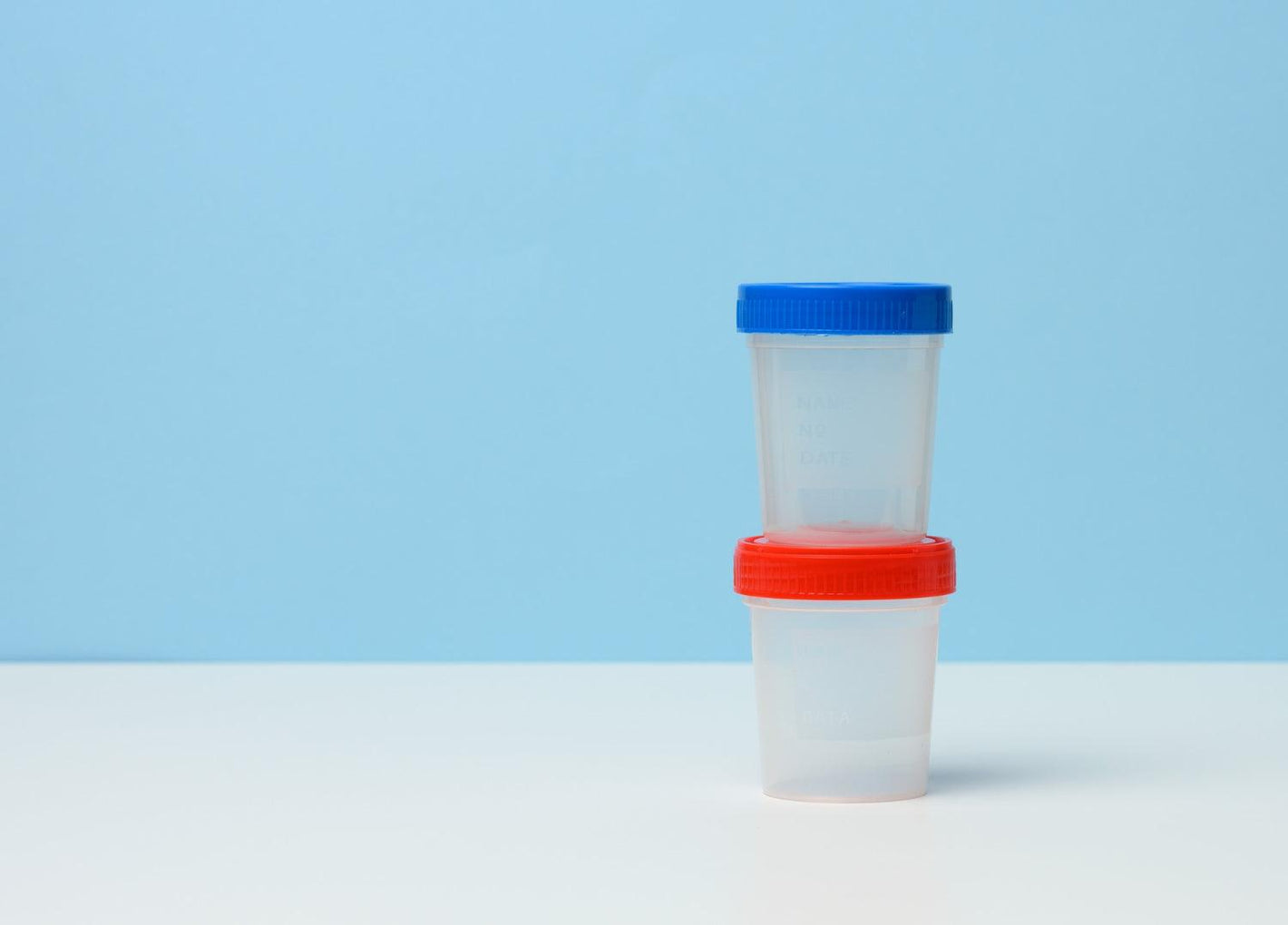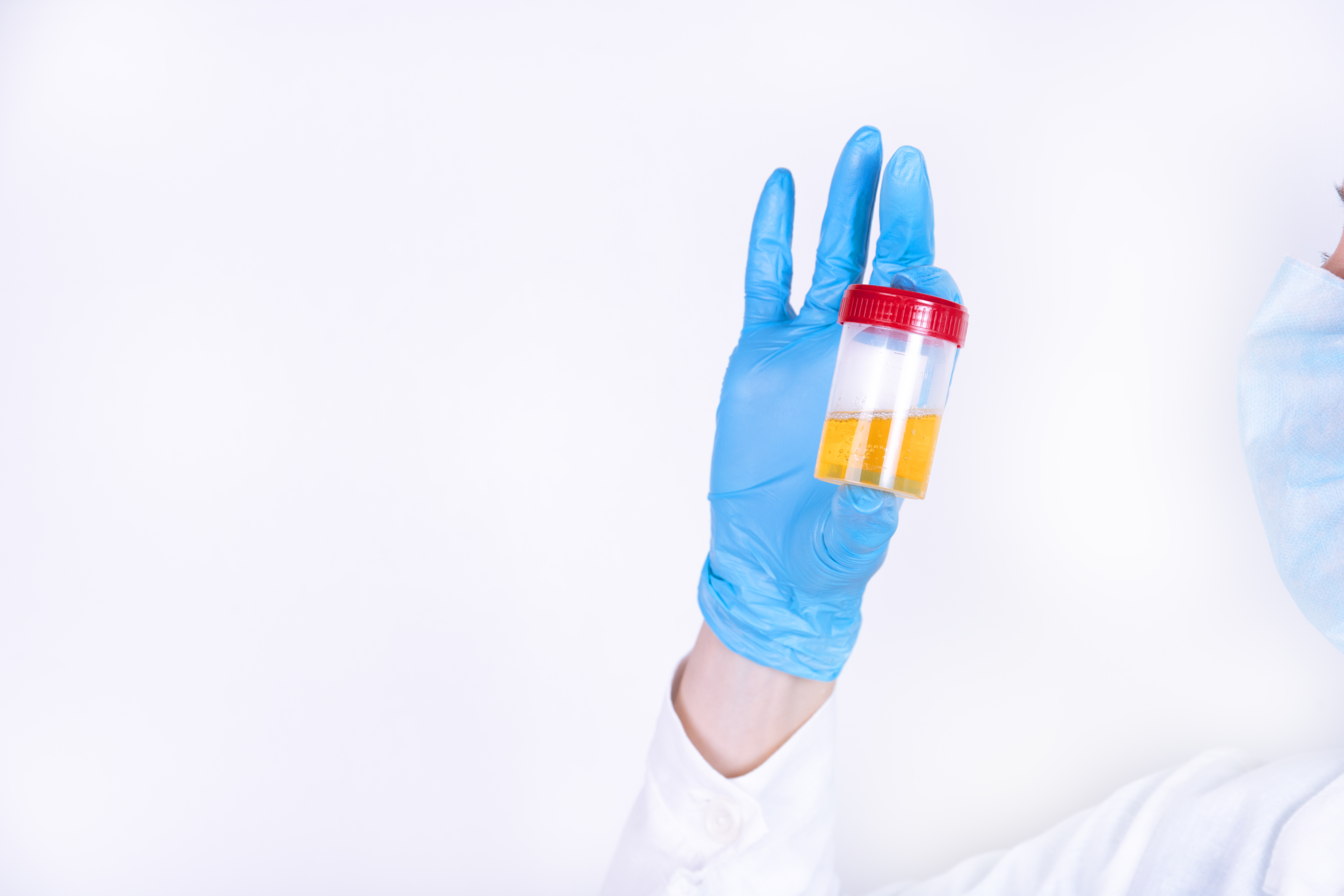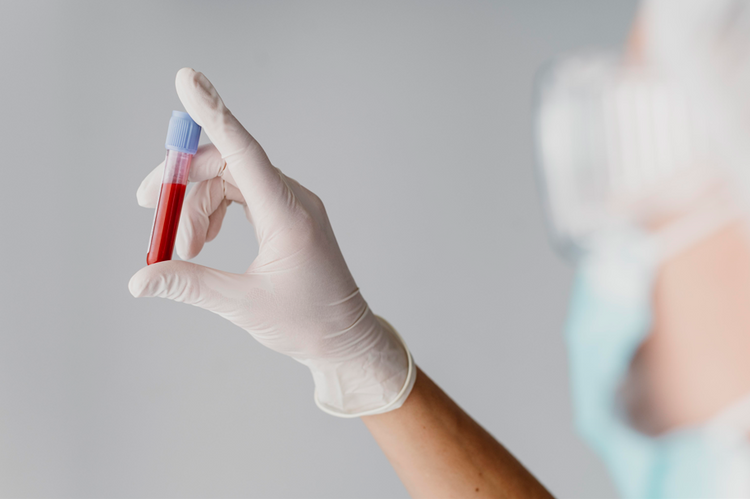What is a urinary bilirubin test?
.png?v=1673525693254)

Related products
Understanding your body’s vital markers is one of the first steps to maintaining long-term health. One such marker is bilirubin—a yellowish substance that forms as a result of red blood cell breakdown. The body usually processes bilirubin in the liver, excreting it through bile. However, when bilirubin is detected in the urine, it can indicate a liver problem or other underlying issue. A urinary bilirubin test is often requested when a healthcare provider suspects issues related to liver function, bile flow, or red blood cell integrity. This test, though simple, can offer critical insight into systemic health and liver efficiency.
 Modern diagnostics now offer quick and reliable at-home options, helping people understand their liver health without waiting weeks for GP referrals. For example, if you're also monitoring your adrenal function, the Cortisol Blood Test available through Welzo is a great complementary diagnostic tool, especially when stress or hormonal imbalances are suspected alongside liver issues.
Modern diagnostics now offer quick and reliable at-home options, helping people understand their liver health without waiting weeks for GP referrals. For example, if you're also monitoring your adrenal function, the Cortisol Blood Test available through Welzo is a great complementary diagnostic tool, especially when stress or hormonal imbalances are suspected alongside liver issues.
These tests are becoming more accessible through platforms like Welzo Home Blood Tests, which allow users to explore a wide range of health assessments from the comfort of home. Early detection plays a key role in treatment and prevention, making such testing both relevant and essential.
What is a Urinary Bilirubin Test?
A urinary bilirubin test is a laboratory method used to detect the presence and concentration of bilirubin in urine. This can be an early indication of hepatobiliary dysfunction, haemolysis, or infections. Normally, unconjugated bilirubin is not water-soluble and does not appear in urine. However, when the liver processes it into its conjugated (water-soluble) form and there’s a blockage or damage, it spills over into the bloodstream and is filtered by the kidneys into urine.
In addition to bilirubin, evaluating other components like thyroid function helps create a more complete health profile. Consider supplementing your bilirubin test with an Advanced Thyroid Function Blood Test, especially if you experience fatigue, weight changes, or sensitivity to temperature—symptoms that often overlap with liver dysfunction.
Types of Bilirubin
Bilirubin comes in two key types—conjugated (direct) and unconjugated (indirect). These are often assessed through blood work, but their abnormal presence in urine can be alarming.
-
Conjugated (Direct) Bilirubin
This type is water-soluble and can pass into urine. Its presence there typically signals liver or bile duct issues. -
Unconjugated (Indirect) Bilirubin
Not water-soluble, this type should not appear in urine under normal conditions. Elevated levels are usually due to increased red cell destruction or a processing issue in the liver.
Maintaining cardiovascular health also helps reduce strain on the liver. The Cholesterol Blood Test available on Welzo can be used in tandem to assess broader metabolic health, especially in those at risk for fatty liver or metabolic syndrome.
Why is a Bilirubin in Urine Test Done?
Doctors recommend this test for individuals presenting with:
-
Yellowing of the skin or eyes (jaundice)
-
Dark-coloured urine
-
Fatigue and weakness
-
Upper abdominal discomfort
It is also common for this test to be run alongside other investigations to assess systemic or liver-related conditions. For example, if hormone imbalance or fertility issues are present—especially in women—the AMH Blood Test may also be advised. This is particularly relevant as liver issues can influence hormone metabolism and reproductive health.
What Are the Risks of a Bilirubin in Urine Test?
This is a non-invasive, low-risk diagnostic tool. However, false positives can occur due to:
-
Pregnancy
Increased metabolic load and hormonal changes can elevate bilirubin. -
Kidney Disease
Damaged kidneys may improperly process bilirubin, altering test outcomes. -
Severe Haemolysis
Large-scale red blood cell destruction may result in elevated bilirubin.
In such cases, additional tests may be recommended. One such test is the CRP Blood Test, used to measure inflammation levels in the body. Chronic inflammation often coexists with liver stress and can distort bilirubin results.
What Happens During a Bilirubin Urine Test?
The test process is straightforward:
-
A urine sample is collected, typically midstream, to reduce contamination.
-
The sample is sent to a lab or analysed using a dipstick for immediate results.
-
If bilirubin is found, it indicates liver or bile duct problems.
In many cases, such findings prompt doctors to investigate the patient’s broader endocrine and reproductive profile. This is especially relevant in women experiencing hormonal disturbances. The Fertility Health Test Collection on Welzo offers a range of options to explore these aspects, making it easier to map a complete picture.
How Long Does a Urine Bilirubin Test Take?
Typically performed during a clinic visit, the test takes about 15 minutes, with results often available within 24–48 hours depending on the lab. The benefit of fast turnaround time means any suspected liver damage or disease can be addressed promptly.
What Disease Causes Bilirubin in Urine?
There are a number of conditions that can cause bilirubin to appear in urine:
-
Liver cirrhosis
-
Hepatitis B or C
-
Gallstones or bile duct obstruction
-
Haemolytic anaemia
-
Certain cancers (e.g., pancreatic or liver)
These conditions compromise how the liver filters and excretes bilirubin. Athletes and bodybuilders who place consistent stress on their system may also be susceptible to temporary liver strain. To monitor this, Welzo’s Sports Performance Tests Collection includes targeted diagnostics that assess muscle breakdown, liver enzymes, and more.
How Is Your Level Compared to the Average?
The average bilirubin level in blood is 0.1 to 1.2 mg/dL. If bilirubin is found in urine, it usually means that blood levels are significantly elevated, prompting further investigation. Routine check-ups and monitoring your full health profile can prevent complications.
Conclusion
A bilirubin urine test is an important diagnostic step for anyone experiencing liver-related symptoms or unexplained fatigue. By detecting bilirubin at early stages, it allows for timely intervention and management, which can be life-saving. The liver plays a pivotal role not only in detoxification but also in hormonal balance, digestion, and immunity.
As diagnostic capabilities evolve, home test kits have empowered individuals to monitor these vital markers proactively. Platforms like Welzo have made it easy for anyone in the UK to access medical-grade health assessments at home. Their comprehensive selection, including the Home Health Tests Main Page, gives patients the autonomy to act early and seek professional guidance without delays.
Whether it’s a one-off concern or part of a larger health transformation journey, accurate diagnostics form the foundation of better health outcomes. By exploring advanced tools and understanding your body's warning signs, you can protect your liver, boost energy, and optimise long-term wellbeing.

































 Rated Excellent by 26,523+ Reviews
Rated Excellent by 26,523+ Reviews